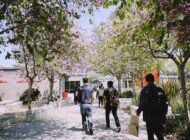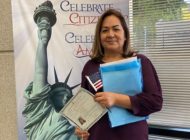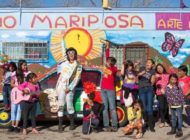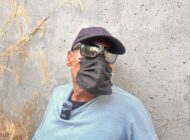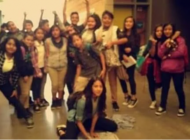Ten years ago, James, an undocumented student at CSUN, moved with his family to Los Angeles from Tlaxcala, México, but he isn’t Latino, he is Korean American.
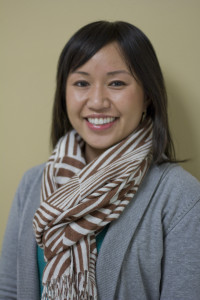
Dr. Tracy Buenavista, professor of Asian American Studies at CSUN. Photo Michael Cheng / El Nuevo Sol.
EL NUEVO SOL
James (an undocumented student alias) called Tlaxcala, Mexico, home for three years as he and his family migrated from South Korea so he could learn Spanish. At age 14, he migrated again with his family to Chatsworth for more opportunities for higher education.
Now, at age 24, James, a Korean student at CSUN majoring in Asian-American Studies is the only member of his family classified as undocumented. His family came from Mexico with visitor’s visas 10 years ago. After those visas expired, James parents secured a new kind of visa which granted them all to stay in the U.S. However, since James was no longer a dependent and he is over the age of 21, now he is on his own.
“Our migration stories were tougher than other migrants who have connections,” says James. “Our family struggled a lot because of not knowing the system.”
James is one of the hundreds of thousands of Asian immigrants that emigrate to the U.S every year.
According to The Pew Research Center, approximately 11 percent of the 11.1 million undocumented immigrants in the United States came from Asian countries. Experts agree these immigrants are facing poverty and criminalization.
“They face a lot of the same issues of other undocumented students experience–criminalization, because the way the U.S immigration system is design is you’re deemed a criminal if you’re undocumented,” says Tracy Buenavista, an Asian-American Studies professor at CSUN. “Criminalization, detention, and the threat of deportation, that’s a stressful thing they have to deal with on an everyday basis. Another barrier they experience is poverty…there are a lot of states where you can’t legally be hired.”
College affordability has become a huge barrier for these students because they do not qualify for financial aid and most states require them to pay out-of-state tuition and fees, which is not the case in California.
In order for James to pay for his college tuition, he works as a full time as a sushi chef in Chatsworth. He works from 10 a.m. till 10 p.m. and gets paid under the table, but he doesn’t complain about his work.
“Finding a job is difficult because you don’t have a social security number so you can’t cash checks,” says James.
James has found some relief though; he is one of the 1.4 million people potentially eligible for deferred action for childhood arrivals (DACA) in the United States, and is currently waiting for his approval. It is estimated that eight percent of the potential applicants are from Asian countries, more than 35,940 young applicants in California alone.
Deferred action grants undocumented people a temporary protected status period in the U.S for 2 years and eligibility for work upon approval.
However, Deferred Action is not a law but a memorandum of understanding, and is only a temporary fix that doesn’t solve the immigration problem.
“This is a good temporary program; it provides temporary relief for the stress of not having to think about being deported,” says professor Buenavista. “But what happens after the two years? The other thing is, it doesn’t give young people relief, it just says you can’t be deported for two years, but it doesn’t provide them with pathway to legal residency or even citizenship.”
Kelly, also an undocumented student from Indonesia, like James, already has her DACA approved. She is a 20-year-old Business major at CSUN and corresponds to the stereotype of being a “model minority.” She is an overachiever with a 4.0 GPA, received multiple scholarships and tutors math for stable income.
Kelly achievements don’t dispel the myth but detracts people from seeing the problems undocumented API’s are facing and this keeps them under the radar.
“When it comes to undocumented people, communities immediately think about Hispanics and not Asians, and this is a problem,” says Kelly.
“Hispanics are the face of the movement and I think the ‘model minority’ [myth] has something to do with that,” she says.
Asians are not supposed to talk about our problems and tell everyone its okay, and that’s been her approach on things, Kelly adds.
“We don’t put our dirty laundry in the open,” says Kelly. We love saving face, and don’t want to embarrass our families.”
Tags: Asian America Asian American Studies Asian Latino College affordability CSUN DACA Deferred Action Indonesia Korea Michael Cheng Tracy Buenavista undocumented students








